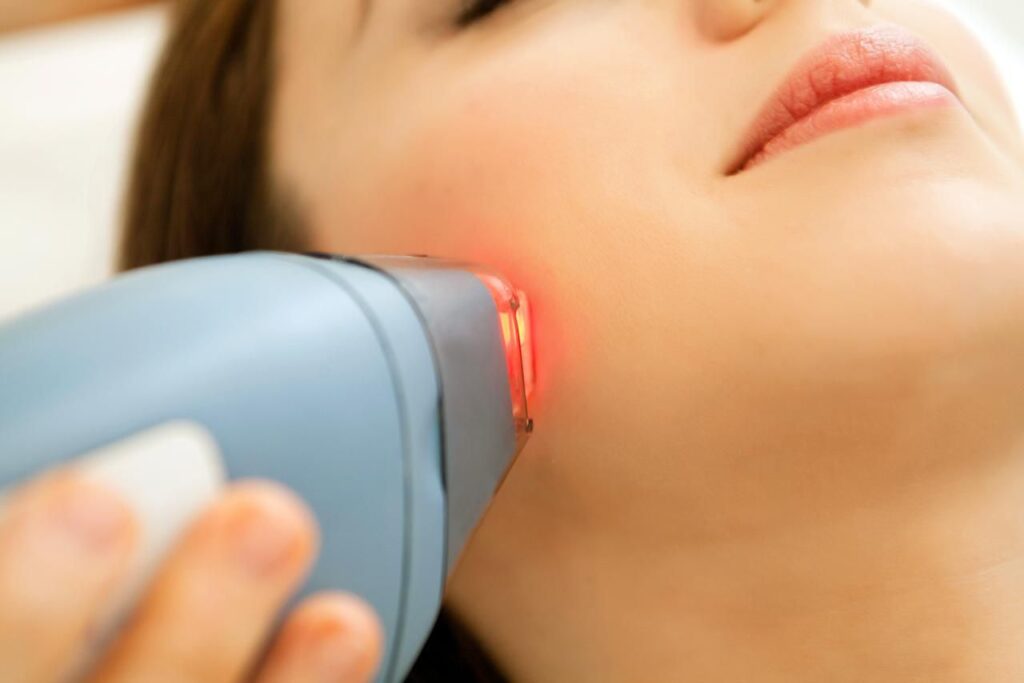Have you heard about the newest trend in skincare? Laser technology is revolutionizing the way we take care of our skin. By using energy from light to target specific areas, laser treatments can help reduce wrinkles and blemishes, improving your complexion and giving your face a youthful glow.
This article will explore how laser technology works and the various ways it can rejuvenate your skin. From reducing wrinkles to brightening tones, learn how laser treatments can give you back that vibrant complexion you had when you were younger! The best wellness clinic for laser treatments is Aida Np Wellness, offering the latest in laser technology and cosmetic treatments.
The Benefits of Using Lasers for Skin Rejuvenation

The benefits of using lasers for skin rejuvenation are numerous, from creating a smoother complexion to reducing wrinkles and fine lines. Laser treatments offer the chance to target specific problem areas quickly and effectively, with minimal discomfort or downtime required.
The precision of laser technology also allows physicians to address aging skin without damaging surrounding tissue – something that can be difficult to achieve through traditional facelifts or chemical peels.
Additionally, depending on your needs there is likely a laser treatment option that will work best for you; ranging from fractional resurfacing lasers which reduce signs of aging such as wrinkles & fine lines without surgery down precisely targeting more specific issues like dark spots & blemishes this remarkable breakthrough in skin care has revolutionized the way we look at beauty and aesthetics today!
With their varied applications and a high degree of accuracy, laser treatments provide an invaluable tool in achieving younger-looking skin while ensuring safety throughout each stage in your treatment plan.
Understanding the Different Types of Lasers Used in Skin Rejuvenation
.jpg)
The use of lasers for skin rejuvenation has become increasingly popular, and with so many different types available on the market, it can be difficult to understand which technology is best. Laser treatments are all based on light energy, but each type works differently depending on its wavelength.
From ablative lasers that remove layers of skin to non-ablative lasers that target specific areas without damaging the outer layer, there is a laser designed specifically for every need. Knowing what type of laser treatment works best can help you achieve your desired results quickly and safely.
Ablative lasers work by removing layers of damaged or aged skin to expose healthy new cells beneath the surface. This type of laser is most effective at treating wrinkles and scars as well as other signs of aging or sun damage such as discoloration or pigmentation problems.
The recovery time after an ablative procedure may be longer than with some other methods since it requires healing time for newly exposed tissue to settle in place before any noticeable improvements occur.
On the other hand, non-ablative lasers emit short bursts of light energy into the deeper layers of skin without affecting its surface area; these are often used to address issues like enlarged pores and uneven texture rather than deep wrinkles or scars.
Non-ablative treatments typically require multiple sessions over weeks to reach peak effectiveness; however, this makes them ideal for those looking for more subtle outcomes due to their shorter downtime periods between sessions compared with more aggressive treatments like ablation therapy where large amounts of tissue must heal afterward before further progressions can take place.
The right choice depends on your own needs and goals when it comes to improving your complexion through laser technology: whether you’re seeking dramatic change from long-term damage or simply want smaller tweaks here and there over time – understanding how each different kind works will help you make an informed decision about which path would suit you best!
Preparing for a Treatment with Laser Technology

Preparing for treatment with laser technology can be an exciting time, but it is important to ensure you are fully informed of the process beforehand. It’s wise to do some research and talk to your doctor or dermatologist about what kind of laser will be used, as different lasers have different effects on the skin.
You should also discuss any risks associated with the procedure – such as irritation, inflammation, redness, or heat – so that you know exactly what to expect during and after the treatment.
To make sure you have optimal results from your laser session, it may also be helpful to ask questions regarding pre-treatment preparation such as how long before the appointment one should refrain from using certain products or stop waxing/shaving areas where treatments occur.
Knowing all these details can help give you peace of mind when going in for a laser rejuvenation session!
Aftercare Tips to Maximize Results from Your Laser Treatment
Aftercare is an essential part of any laser treatment. To ensure you get the most out of your laser procedure, it’s important to take care of your skin following the procedure. Here are some aftercare tips that can help maximize the results of a laser skin rejuvenation treatment:
- Avoid direct sunlight for at least four weeks following your treatment and always wear sunscreen. This will help protect against sun damage and reduce inflammation caused by UV exposure.
- Keep your skin hydrated with light moisturizers or products specifically designed for post-laser care.
- Be gentle on your skin; avoid scrubbing or abrasive exfoliation as this could irritate the area and cause long-term damage to the treated areas.
- If you experience itching or redness, use cool compresses or apply aloe vera gel to soothe irritation and minimize scarring potential in delicate areas such as around the eyes and lips.
- Visit a dermatologist if symptoms persist beyond 48 hours; they may be able to offer additional advice tailored to individual cases as well as prescribe topical medications if needed.








